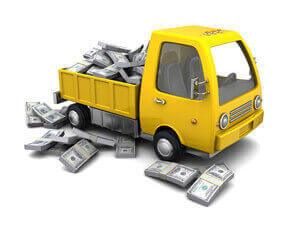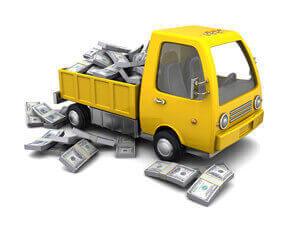 Do you think that by just having a transport business expense insurance Australia fleet businesses are already protected from financial ruin? Not so fast there. It is a known fact that having this financial protection insurance can put a lid to a rather leaky business, small fleet owner-operators have an important role to play in making sure that money going out from the venture are well-spent and accounted for. If still it doesn’t get to you then, it is high time to learn how to, at the very least, understand the costs involved in operating a transport business.
Do you think that by just having a transport business expense insurance Australia fleet businesses are already protected from financial ruin? Not so fast there. It is a known fact that having this financial protection insurance can put a lid to a rather leaky business, small fleet owner-operators have an important role to play in making sure that money going out from the venture are well-spent and accounted for. If still it doesn’t get to you then, it is high time to learn how to, at the very least, understand the costs involved in operating a transport business.
Cost of Operation
Understanding the costs of operation is part and parcel of any transport business owner-operator’s job. One should not just rely on your accounting staff alone if the aim is to make a business thrive and make money. You cannot just rely management of your company’s cash flow to another without you having any knowledge about it. As a newbie in the field, it is important that you learn the difference between fixed and variable costs so strategies can be done to minimize them without hurting productivity.
Fixed costs are normally expenses which are deemed constant or needed even when all your fleet are on standby mode. This includes vehicle mortgage payments, truck insurance premiums, permit and licenses, and employees salary. Variable costs, on the other hand, comprise the bulk of your expenses related to driving a vehicle. It includes fuel consumption, maintenance and repairs, food and lodging, and toll fees. In this case, the money you spend is directly correlated to the miles a truck drives. The longer a truck travels, fixed costs remain constant while variable costs changes along with it.
Understanding Is Key
Understanding the difference between fixed and variable costs allows a fleet owner to know the meat of the matter. Unless money grows in an operator’s backyard, one has the right to know how a huge chunk of your hard-earned dollars is being spent or if it is well-spent. Learning how much fixed costs allows you to note down daily expenses of running your transport business. Learning variable costs will also allow you better understanding on how much business money is being spent on the road. Knowing both will help you find ways to save as well as find the right financial protection.
Furthermore, learning to compare fixed and variable costs can give you much needed insight on your business cash outflow. It allows you to have a clearer discernment on critical areas to focus upon, what particular part of the fleet operation is more profitable, and what doesn’t work for the business. To reduce fixed costs, you may want to shop for insurance companies and compare premiums and coverage. To help reduce variable costs, a change in driving habits or much better preventive maintenance and fuel-saving tips can come handy. In short, knowing how much you’re spending for the business vis-a-vis how much you’re raking in will ultimately give you smarter, more practical, and more informed decision.
Financial Protection Insurance
While truck and liability insurance are often considered by fleet owners, not many are interested in obtaining transport business expense insurance Australia. This type of policy is considered specialty financial protection insurance as it delivers benefits tailored to the needs of a business should disaster strikes. When an accident happen and your business license got suspended while litigation is ongoing, this insurance policy allows you to still finance operational costs. To learn more about transport business expense insurance, it is best to call our office number NOW or enquire online to obtain a free quote.

